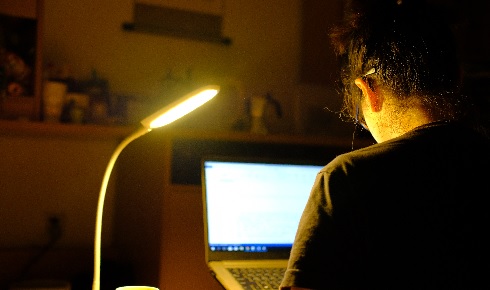11 tips for choosing the right PhD

Sophien Kamoun, plant pathogen researcher and group leader at the Sainsbury Lab, gives his top tips for choosing where to do your PhD or postdoc project
November 30th 2021
Prospective PhD students often ask me the same questions: How do I select a host lab? Should I select a lab based on a project? How do I find a good supervisor? Below I have tried to summarise on the advice I generally give, and some of the ways students can help themselves come to a good decision. Many of these tips would also apply to those seeking a postdoc position too.
1) Use networking to help with your decision.
“Firstly, build a network of mentors and colleagues at various career stages who can candidly advise you on this big decision. The best PhD students have an analytical mind: think of this as the first step of your doctoral work and analyse your peers’ feedback on your choices.”
2) Identify a general topic that inspires you.
“A PhD is a long adventure. You want to wake up in the morning and be inspired by your project and excited to go to the lab. Pick a research topic that keeps you up at night, that makes you dream! If no science topic makes you dream, then perhaps you should consider other options than doing a PhD. Scientific research is quite a unique endeavor, and it takes a resilient and patient attitude.”
3) Consider internships or work experience first.
“In my view, especially here in the UK, too many students start their PhD before having truly experienced what it takes to do scientific research. I advise a few internships or work experiences to build up confidence and get to know your strengths and weaknesses before starting the PhD. Otherwise, the first year or two of the PhD can be overwhelming.”
4) Have some flexibility.
“Do not get too specific with the research topic you are seeking. The key to a successful PhD is a good balance between an inspiring project, and a good fit with your supervisor and lab mates. If you are aiming for a long career in research, you’ll have plenty of time to change directions later on. Many, if not the majority of research scientists end up working on topics that are quite different from their thesis topics.”
 Exploring publications from different labs can help give a sense of their output and the contributions of current and former PhD students.
Exploring publications from different labs can help give a sense of their output and the contributions of current and former PhD students.5) Do your research.
“Once you identify a lab you like, do your homework. Do you like what they publish? Do you like the general vibe of the lab and their values? What about the extracurricular stuff: Do they do sci-comm and outreach? Do they network? Does the lab have a presence on social media?
Think about their alumni – where are past members of the lab now? Have they moved on to successful careers, and are those the career paths that you aspire to? The lab’s track record are hard facts that should help guide your decision.”
6) Pay them a visit.
“Make sure to visit the lab before making any final decisions. Talk to the students and postdocs who work there. Ask around about the lab and maybe even seek out alumni for their perspectives. Has the PI facilitated their career development? How do they rate their experience? What went well, and what didn’t? You will find so much information and perspectives from an in-person visit that you will not find online.”
7) Reputations matter.
“Check the lab on PubPeer.com, a platform that enables scientists to provide feedback and discuss research post-publication anonymously.”
8) Don’t just follow the glamour or the money.
“Don’t get charmed by big labs with big papers and big bucks. A good PhD supervisor is first of all a caring mentor who contributes to the overall development of their students beyond lab work. Sadly, in biology, many PIs treat their students and postdocs as just a pair of hands, with mentoring being viewed as an afterthought if anything. Avoid such labs, even if they are productive.”
9) Consider the lab’s momentum.
“Be aware that PI careers evolve and it may not always be in a direction that suits you. A lab that may have been an amazing environment at one point may not be so at this particular moment. As PIs get more established, their management style and their involvement in the laboratory’s affairs may change, and not always for the best. Influential students and postdocs move on to their own careers. Try to get a sense of the lab’s momentum and take that into account when making a decision.”
 "Think about their alumni – where are past members of the lab now? Have they moved on to successful careers, and are those the career paths that you aspire to?"
"Think about their alumni – where are past members of the lab now? Have they moved on to successful careers, and are those the career paths that you aspire to?"10) Consider rotation.
“If you’re still unsure which direction to go or which lab to join, consider joining a rotation program. That way you get to experience multiple labs and styles before making a final decision. PhD programs with a first year rotation should really be more common; they enable you to directly experience different laboratory and research styles, as well as diversify your technical skillset.”
11) And finally… you can always switch.
“If things don’t work out for one reason or another after you join a given lab, you can simply quit and move on. There is nothing dramatic nor negative in switching labs after you start a PhD (or postdoc for that matter). It is better to move on than get bogged down in a difficult or even toxic situation. I know many scientists who have done just that and went on to have great careers. That may not have happened if they didn’t act and switch labs in a timely fashion.”
Sophien Kamoun is Group Leader of The Kamoun Lab, part of the Sainsbury Lab in Norwich. More writing from Sophien can be found here.


